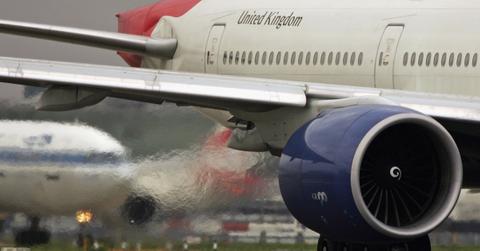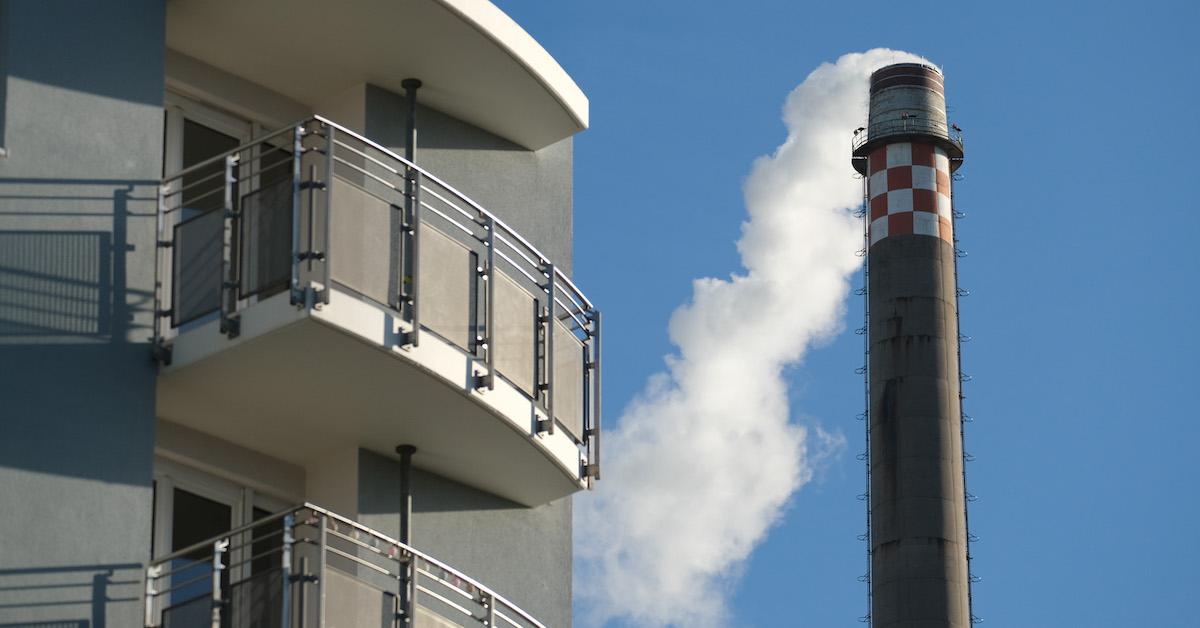New Report Finds Startling Emissions Gaps Between Wealthy and Poor
Published Nov. 1 2022, 11:53 a.m. ET

For years, experts have been telling us that the climate crisis will have — and is already having — disproportionately negative effects on low-income people and those living in poverty. And two new reports highlight that.
The UN's Emissions Gap Report found that the chances of us staying on track to meet the goals of the Paris Agreement are pretty abysmal, while Autonomy’s report found that the U.K.’s wealthiest are responsible for a shockingly higher amount of emissions than the country’s poorest residents.
Keep reading for the two reports’ key findings — and for what we need to do to correct this disparity. (Hint: it has to do with fighting climate change.)

The UN’s Emissions Gap Report 2022 determined that we are not on track to meet the Paris Agreement’s goals.
In late October 2022, the United Nations Environment Programme (UNEP) published the 2022 edition of the Emissions Gap Report, which is titled “The Closing Window — Climate crisis calls for rapid transformation of societies.” The report, which is now in its 13th edition, was released as a precursor to COP27, the upcoming climate change conference.
The Emission Gap Report looked at the progress the planet has made in terms of achieving the goals of the Paris Agreement — and unfortunately, it found that us Earthlings are “falling far short of the Paris goals,” and that there is “no credible pathway” to the 1.5-degree Celsius target.
“This report tells us in cold scientific terms what nature has been telling us, all year, through deadly floods, storms and raging fires: we have to stop filling our atmosphere with greenhouse gases, and stop doing it fast,” Inger Andersen, Executive Director of UNEP, said in a statement.
“We had our chance to make incremental changes, but that time is over. Only a root-and-branch transformation of our economies and societies can save us from accelerating climate disaster,” Andersen added.
Even though we have fallen off course, that does not mean we cannot get back on course and reverse this crisis. World leaders must step up and heed the recommendations of the UN and climate scientists to mitigate emissions.
Another new report found that the wealth gap and emissions gap are deeply linked.
On Nov. 1, climate research organization Autonomy published “A Climate Fund for Climate Action: the benefits of taxing extreme carbon emitters.” The report found that in the U.K., it would take the bottom 10 percent of earners 26 years to produce as much carbon emissions as the highest 1 percent of the country’s earners.
Generally, this is because the wealthy are more likely to ride on airplanes (including private jets), drive cars, own more land and homes, use more electricity, and simply consume more, as noted by The Guardian.
To remedy this imbalance, Autonomy believes that the U.K. must enact a carbon tax on the wealthy — in fact, the organization describes this new report as a case study to explore how a Climate Wealth Fund could benefit the country.
“With no U.K. carbon tax in place, the richest 1 percent have been free to ‘dump’ disproportionately large amounts of carbon into the atmosphere for little to no cost, creating a burden now shouldered by the rest of the population,” Autonomy stated. “To green the U.K. economy, and bring about the change current and future generations desperately need, this must change.”
Basically, the solution to remedying the climate crisis — and the devastating ways it is already affecting people around the world — is to make it more difficult for high emitters to continue emitting high amounts of fossil fuels. When will they wake up and realize that mitigating climate change is more important than having all the money in the world?